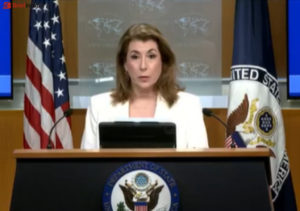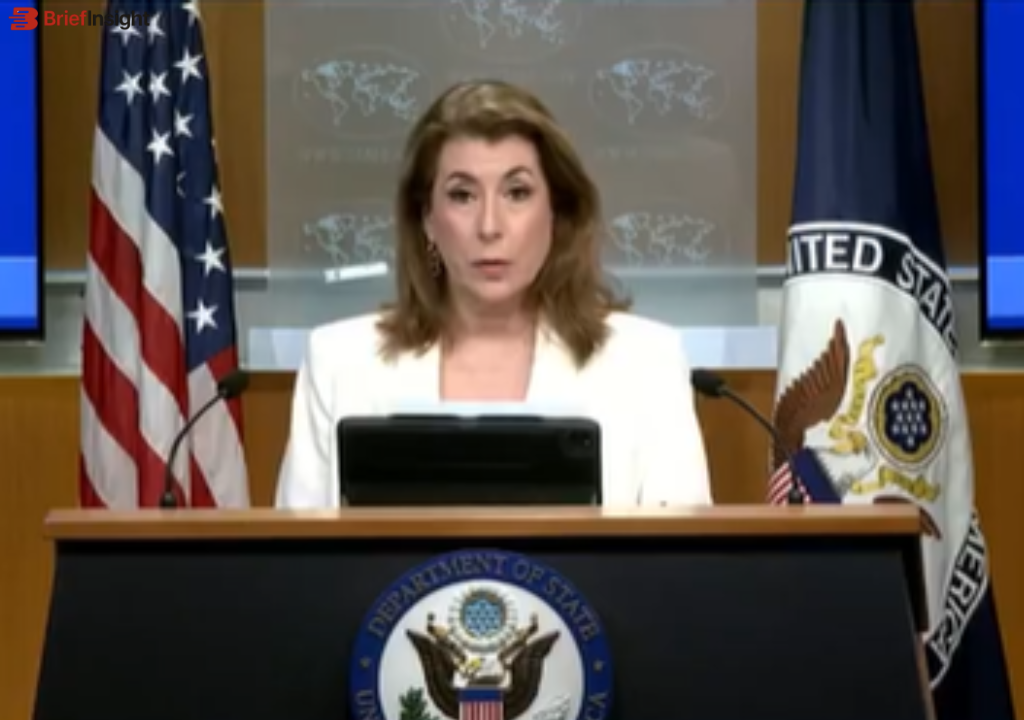Amid Pahalgam terror tensions, the US sidesteps Pakistan’s admission of doing “dirty work” for the West and pushes for peace, as Secretary Rubio prepares to speak with India and Pakistan. In a week marred by escalating hostilities between India and Pakistan, the United States chose to sidestep a controversial admission by Pakistani Defence Minister Khawaja Asif. Asif acknowledged on international media that Pakistan had performed “dirty work” for the United States and its Western allies for decades — a statement that appeared to validate long-standing accusations regarding Islamabad’s double game on terrorism. However, the US State Department declined to directly address the remark, focusing instead on de-escalation efforts.
Pakistan’s Admission: “We Did Dirty Work for the West”
Khawaja Asif’s remarks during an interview with Sky News have stirred controversy globally. He said:
“We have been doing this dirty work for the US for the past three decades, including for the West and the United Kingdom.”
He also acknowledged that the strategy had backfired, stating, “We have suffered because of that.” His admission appeared to confirm allegations that Pakistan played a duplicitous role in regional geopolitics — helping the West while fostering extremist networks.
US Response: Evasive and Focused on Diplomacy
When asked about Asif’s statement during a Tuesday press briefing, US State Department spokesperson Tammy Bruce declined to comment directly. Instead, she said:
“The Secretary of State will speak with the foreign ministers of both countries. We are monitoring the developments across the board and are in touch at multiple levels with the governments of India and Pakistan.”
She reiterated the US stance of urging restraint:
“We are encouraging all parties to work together for a responsible solution. The world is watching this.”

Tensions Escalate After Pahalgam Terror Attack
The remarks come amid soaring tensions between India and Pakistan following the April 22 Pahalgam terror attack, which left 26 people dead. The attack, claimed by The Resistance Front (TRF)—a proxy of the banned Lashkar-e-Taiba—has prompted strong reactions from New Delhi.
India has:
- Suspended the Indus Waters Treaty,
- Cancelled all Pakistani visas,
- Downgraded diplomatic representation in Islamabad,
- And placed its armed forces on high alert.
Pakistan, meanwhile, has claimed it has credible intelligence that India is planning a military strike within 24–36 hours.
Links Suggested: India-China Trade War: Can India Adopt Trump’s Economic Playbook?
Asif Denies Lashkar Ties Despite Admission
Interestingly, in the same interview, Khawaja Asif denied that Lashkar-e-Taiba or any of its proxies are still operating in Pakistan.
“Lashkar-e-Taiba doesn’t exist in Pakistan anymore. It is extinct. If the parent organisation does not exist, how can the offshoot take birth here?”
The statement stands in stark contrast to global intelligence assessments and India’s evidence indicating that TRF continues to receive logistical support from Pakistani soil. Critics have called out the contradiction in Asif’s narrative—admitting to historical support of Western operations while denying active terror infrastructure today.
US Secretary Marco Rubio to Speak with Both Sides
US Secretary of State Marco Rubio is expected to speak with the foreign ministers of India and Pakistan. Tammy Bruce confirmed that conversations may happen “as early as today or tomorrow.”
“He is also encouraging other national leaders and foreign ministers to reach out to India and Pakistan to support de-escalation,” she said.
This comes at a time when both countries are mobilizing security forces, especially along the Line of Control (LoC), raising fears of a potential escalation or retaliatory strike.
The US Push for De-escalation
The US continues to emphasize the need for calm. Bruce said the Biden administration is working at multiple levels, including:
- Diplomatic channels,
- Military-to-military backchannels,
- And global alliances to prevent further escalation.
“Action is being taken in this case. The Secretary speaking directly to his counterparts is part of that larger push.”
Despite not addressing the explosive “dirty work” admission, the US position seems to be centered on avoiding open conflict between two nuclear-armed neighbors.
Links Suggested: Digital India and Cyber Security: Balancing Innovation and Protection
Conclusion
The US decision to sidestep Khawaja Asif’s ‘dirty work’ remark underscores Washington’s strategic tightrope walk between diplomacy and direct accountability. As tensions remain high in the subcontinent after the Pahalgam attack, the US is choosing quiet diplomacy over confrontation, urging both India and Pakistan to de-escalate and engage.
While Asif’s remarks have added fuel to the fire, India’s focus remains fixed on justice for the victims, and Pakistan’s statements continue to draw global skepticism. The coming days — especially after Secretary Rubio’s expected calls — may define the trajectory of peace or provocation in South Asia.

